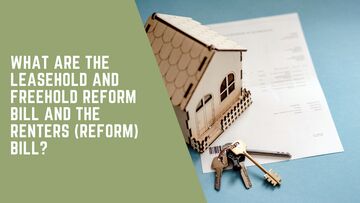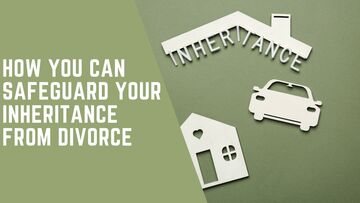Everything You Need To Know About The New Divorce Laws
Divorce| 19.07.2021
No one has ever walked down the aisle on their wedding day believing anything other than “till death do us part”. The past few years have taught us, however, that life is under no obligation to give us what we expect.
Sometimes marriages and civil partnerships end. For those about to go through the painful process of getting divorced, it is important to know that the law in England and Wales is about to change, ending what is known as ‘fault-based’ divorce and making the entire process more accessible. In this article, we set out how the Divorce, Dissolution and Separation Act (DDSA) 2020, which comes into force on 6 April 2022, will affect couples who petition for divorce on or after that date.

What are the grounds for divorce under the current law in England and Wales?
In England and Wales, there is only one ground for divorce, that is that the relationship has irretrievably broken down for one of the following reasons:
- Adultery
- Unreasonable behaviour
- Desertion
It is also possible to file for divorce where both parties have lived apart for more than two years and mutually agree to the divorce, or they have lived apart for five years or more, and there is no mutual agreement.
As such, unless a couple wishes to wait for two or five years, current divorce law effectively forces one spouse to blame the other in order to end the marriage.
For many years, family law solicitors, judges, the Law Society of England and Wales, the Law Commission (as far back as 1990), and various family law NGOs have highlighted the inadequacies of the current fault-based divorce law system, especially regarding the impact it can have on children.
Finally, following extensive consultation, the DDSA 2020 was enacted on 25 June 2020.
How the DDSA 2020 changes divorce law in England and Wales
From 6 April 2022, neither party to a divorce will be required to blame the other for the irretrievable breakdown of the relationship. Instead, all that is required is a written statement from one or both parties confirming the irretrievable breakdown of the marriage or civil partnership. Furthermore, the other party cannot contest the divorce or dissolution if they do not agree.
The new process will require the judge considering the divorce or dissolution to simply review the statement and if they accept that the marriage has irretrievably broken down (which is inevitable), issue a divorce order.
Another key change brought in by the DDSA 2020 is that both parties can file a joint application for divorce or dissolution.
There will be a minimum period of 20 weeks between the start of divorce proceedings and being able to apply for a conditional order (previously known as the decree nisi). This ‘cooling off’ period is to allow divorcing couples to reflect on the decision they have made and perhaps reconsider. Furthermore, it gives both parties time to make arrangements for their children and work out how their property, pensions, and assets will be divided.
The law is identical for civil partnership dissolution except for adultery being unavailable as a reason for the irretrievable breakdown of the relationship.
Your options if you are considering divorce and have not yet filed a petition
The Ministry of Justice’s ‘digital team’ is creating a new online platform for no-fault digital divorce applications. Full guidance on the new process and online system will be released before the go-live date of 6 April 2022.
If you want to get divorced but have yet to file a petition, you can choose to delay until 6 April to apply through the new system. If you wish to divorce under the current fault-based system you must submit your application by 4pm on 31 March 2022.
Final words
Removing the requirement for one party to place blame on the other in order to get divorced is long overdue. The advantages are numerous, the most important being that it will reduce the level of disputes between separating couples. This will benefit all parties, but especially children, who are all too often caught between the war of accusations divorcing parents have, up until now, been forced to engage.
Pearce Legal has a dedicated family law team who can advise and represent you on divorce, financial settlements, and arrangements for children. To make an appointment, please contact us on 0121 270 2700 or enquire through our contact form.
Expert advice for you Book a free consultation
The team at Pearcelegal will be delighted to discuss your legal matters and give you a no-obligation quote.



